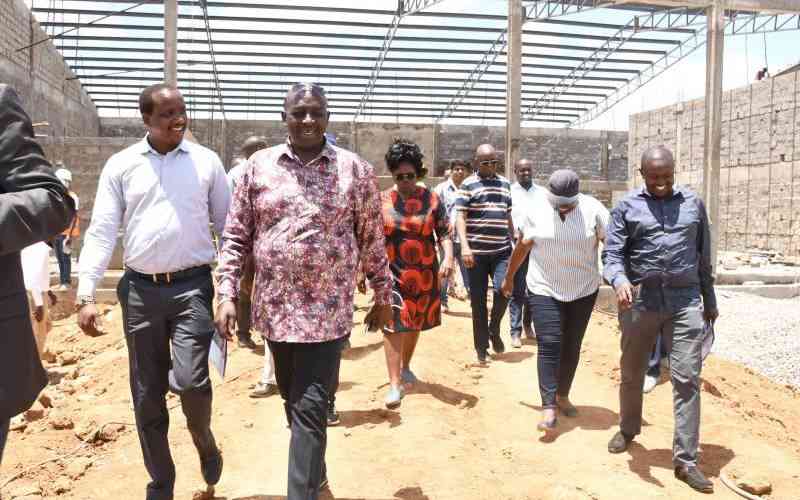×
The Standard e-Paper
Smart Minds Choose Us

Members of the parliamentary tour the Special Economic Zone (SEZ) in Naivasha whose construction had stopped for two years due to a lack of funding from the national government. [Antony Gitonga, Standard]
The national government has set aside Sh4.7 billion for the construction of industrial parks in counties to promote manufacturing.